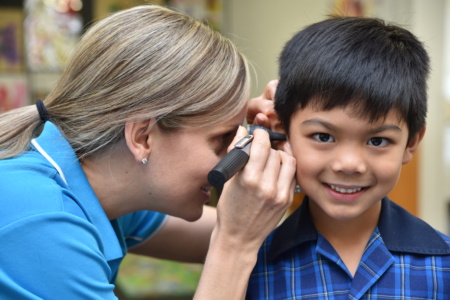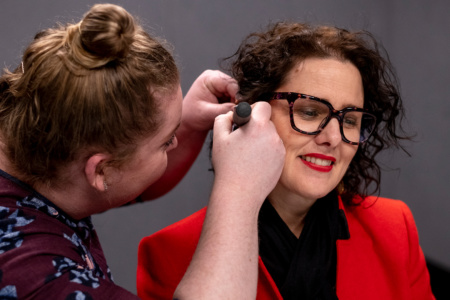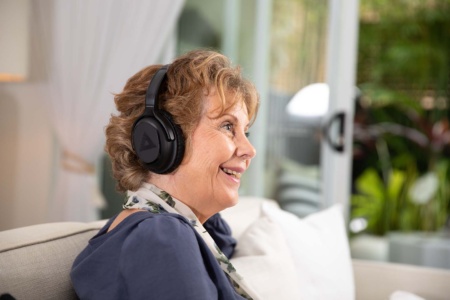Playing sports is a pillar of Australian culture, for many children and adults alike.
Typically, having an implantable hearing device such as a cochlear implant or bone anchored hearing aid doesn’t mark the end of getting out there with your local team.
That said, there are some careful considerations to think through before heading out onto the field or into the water – and as we’re all unique, you should always check with your audiologist or doctor about what’s safe for you.
Non-contact sports
Non-contact sports such as athletics are ideal for people who wear cochlear implants. However, during any physical activity, it’s recommended that you secure your sound processor/s with a headband or Liteware cable – potentially saving you hours of scouring a sports field for missing equipment!
Semi-contact sports
Wearing protective headgear is recommended for semi-contact sports such as netball and soccer, and for bat-and-ball sports including cricket and baseball.
Contact sports
While the components of cochlear implants are built to survive the rough and tumble of everyday life, we don’t typically recommend full contact sports such as boxing, hockey and rugby due to the damage that can often be sustained to your device.

Water sports
In general, making a splash with cochlear implants is no problem thanks to waterproof accessories such as the Cochlear Aqua+ Kit. It’s also important to secure your speech processor/s to avoid losing it while swimming. These water-safe accessories are key for other water-based sports such as rowing or canoeing.
Adventure sports
If adventure sports are your thing, such as skydiving or scuba diving, contact your implant manufacturer for safety recommendations.
Useful links









